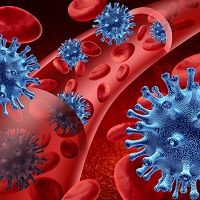Article
Staph Infection May Cause Diabetes
Author(s):
With certain strains already proving to be resistant to treatment with antibiotics, Staphylococcus aureus is posing another major health threat.

With certain strains already proving to be resistant to treatment with antibiotics, Staphylococcus aureus is posing another major health threat.
A new study identified chronic exposure to a toxin released by S. aureus, the bacterium responsible for staph infections, as a possible cause of type 2 diabetes. Lead author Patrick Schlievert, PhD, and his University of Iowa (UI) colleagues examined the bacterium’s impact on the progression of the disease. In addition to indicating potential for better treating the condition, the findings may help prevent type 2 diabetes one day.
“What we are finding is that as people gain weight, they are increasingly likely to be colonized by staph bacteria — to have large numbers of these bacteria living on the surface of their skin,” Schlievert, professor and department executive officer of microbiology at the UI Carver College of Medicine, explained in a news release.
Obesity has long been determined a risk factor for type 2 diabetes, however, now the characteristic is also being linked to the way the body processes bacteria. In the study posted in mBio, the researchers provided prolonged exposure of S. aureus superantigen toxic shock syndrome toxin-1 to rabbits.
Not only did the results show thatthe animals had insulin resistance and systemic inflammation, but glucose intolerance as well— symptoms that are consistent with type 2 diabetes. Previous research by Schlievert proved that those staph bacteria superantigens rattle the immune system and can have deadly consequences.
“The human microbiome changes in persons with obesity and type 2 diabetes, including increases in Staphylococcus aureus colonization and overt infections,” the authors wrote.
The nearly undeniable bridge between the bacterium, obesity, and type 2 diabetes — due to alterations in the metabolism and chronic inflammation – reveals the concern in the disease’s progression. The study suggests that S. aureus aids in the development of type 2 diabetes. However, now that the team is aware of the risk, necessary improvement steps and further research can be made.
“We are working on a vaccine against the superantigens, and we believe that this type of vaccine could prevent the development of Type 2 diabetes,” Schlievert concluded.




